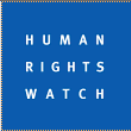Last Chance to Get it Right in Afghanistan
17.01.2012
by Heather Barr and John Sifton
Published in: The Huffington Post
December 29, 2011
Ten years ago last week, Hamid Karzai was sworn in as the leader of Afghanistan. “In this critical time, when our motherland is watching our actions, let us come together and be brothers and sisters,” he said, taking office as head of the interim government after the Taliban’s defeat. “Let us be good to each other and be compassionate and share our grief. Let us forget the sad past.” His words captured the hope of many Afghans that their country was emerging from conflict to a new era of reconstruction, democracy, and respect for human rights.
Ten years later, Afghanistan’s situation is as shaky as it was in 2001. While some economic development has taken place, largely due to an influx of foreign cash, most indicators show limited improvement. In crucial areas such as literacy, life expectancy, poverty and maternal and child mortality, the situation remains dismal.
Lack of security remains the country’s biggest problem. In late 2001, the Taliban seemed defeated. But the insurgency soon revived as the Bush administration shifted resources and attention to Iraq, and Karzai, who was formally elected president in 2004, ran a government deeply mired in incompetence and corruption.
Afghanistan’s central government now controls a shrinking part of the country. Civilian deaths from the conflict reached a yearly high in 2011, largely due to unabated Taliban attacks.
Even women’s rights—the lauded benefit of the Taliban’s fall—are in doubt. Women are more involved in governance and the government has taken some steps toward promoting women’s rights, such as enacting a law on violence against women and boosting girls’ school attendance. But women still suffer forced and early marriage; lack of education, health care and employment; restricted movement; threats and attacks against women in public life, “honor” killings; and imprisonment for fleeing abuse. Many abuses reflect cultural norms, but others stem from government failings.
Meanwhile, aid for Afghanistan is plummeting, as international forces eye the exits. The Obama administration has set a military withdrawal deadline of 2014, though details hinge on a pending long-term US-Afghan partnership agreement. What can the US and other governments do now, to temper the effects of this decade of missed opportunities?
First, end support for warlords and abusive leaders. Soon after the September 11 attacks, the US armed and funded local warlords with long histories of rights abuses, believing that they would assist in controlling security and hunting down al Qaeda. This was probably the single most damaging mistake in Afghanistan in the last 10 years. Warlord-controlled militias, protected by the Karzai administration, were given free rein to terrorize, extort, and abuse. It’s not too late for the US and its allies to distance themselves from abusive leaders and work with the Afghan government to remove them from positions of authority.
Second, empower Afghan institutions that protect rights. International actors will have decreasing influence over Afghan institutions after troops withdraw. The legacy of the US-led intervention will depend on the ability of institutions like the Afghan Independent Human Rights Commission and the Electoral Complaints Commission to perform their roles. A functioning criminal justice system is also essential. There is an urgent need for independent and effective agencies and courts to oversee the army and police to ensure rights are respected and abusers punished. Without a functioning mechanism to combat the massive corruption that plagues the Karzai government, other reforms won’t be effective.
Third, don’t let aid leave with the soldiers.Serious problems, from corruption to inefficiency, have kept aid from being used effectively, but this shouldn’t be an excuse for blindly slashing aid. Many Afghans still desperately need assistance, from education to health care to shelters for women fleeing violence. Aid needs to be smarter, not smaller.
Finally, focus on the core security forces. Training the police and army has been difficult, expensive, and frustrating. But it is essential if Afghans are to have security after international troops withdraw. The US has tried to compensate for weaknesses of the police and army by supporting a new local defense force, the Afghan Local Police. But the force has all the hallmarks of past abusive militias, exacerbating instability in places, and diverting attention and resources from building a professional army and police force.
The damage of the last decade’s failures can’t be fully repaired. But it’s not too late to focus efforts on human rights, the rule of law, and fighting corruption. Afghanistan’s future should not depend on Hamid Karzai or any other individual, but on democratic institutions that ensure that citizens get the better lives they deserve.
John Sifton is the advocacy director for Asia at Human Rights Watch; he worked in Afghanistan from 2001 to 2004. Heather Barr is Human Rights Watch’s current Afghanistan researcher
Share This
Your comments on this
